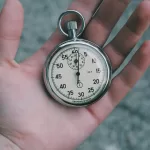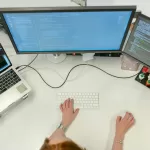data-pm-slice=”1 1 []”>The main purpose of minimalist living is to make your life simpler by getting rid of useless items, and giving your needs and wants top priority will enable you to enjoy a better, less stressful life. By these deeds, you will be able to grow and become modest. They could maybe help you in some capacity.
How can one live a simple life?
Simple living is living and surrounding yourself as simple as is practical. Apart from helping you to get rid of things, it helps your head and heart as well. Less implies more time for the essential elements of your life: hobbies, relationships, or personal growth.
Why would simplicity help?
One gains much from leading a modest life. View these main benefits:
Stress: A clean surroundings can help you to unwind and experience more clear thinking. Proper arrangement of your environment can help you to find what you need and enable more focused attention.
Less objects aggravate you and greater maintenance of your room helps you to do more. Finding anything takes less time when you have less to remember. You are now capable of more.
One can cut costs. One is to think about your purchases and cut back overall. Simplicity helps you to buy just what you need. This helps you avoid wasting time or money on pointless objects.
Less to do gives you greater freedom. You should grab new chances and investigate interesting hobbies. When you move, travel, or veer off course in your life, you won’t have to carry as much.
Beginning a simple life: how
One can start to lead a reasonable life with little effort. These steps can allow you to simplify your life:
1. Review your present collection.
Look first at your possessions. Look over your personal belongings: furniture, clothes, and other stuff. Think through your actual demands as well as what is just taking up space. This first look will direct your choices on what to discard.
2. Set aside space for yourself.
Knowing what you already have, weed out the things you don’t now need. Sort everything—including clothes or kitchen utensils—into a separate room or grouping. Decide what you should donate, sell, or toss. The area should be less crowded and more practically useful.
3. Support cleaning around here.
When you plan and decorate your house, use fundamental ideas. Select furniture and artwork you will enjoy and use without having too many of them. Choose patterns with simple lines and few little touches to allow you to feel in control and calm.
4. Plan your daily activities.
Minimalist living means not just organizing your house, calendar, and possessions but also your obligations. Look at your everyday responsibilities. Sort them so you could find which ones you need and which ones you should cut back on or avoid. Following this will allow you extra time for important events.
5. Think of things as a basic person
Learn to be frugal and appreciate quality above mere count. More often than anything else, events and people define objects. Smart people cherish the little pleasures. Changing your viewpoint on this can allow you to pick better goods and please you with less.
The goal is to keep simplicity.
Simplicity of life calls for constant work and attention. Never overlook these ideas:
Make arrangements for regular rounds of cleaning to keep your space neat and ordered. You could decide to do this each month or in line with seasonal variations.
Take great care with your purchases of food and beverages. Think about if buying anything new will make your life better before you ever do.
Anticipate your goals here. Recall the reason you decided to live a simple life. Release stress; save money; or find additional time. These goals will help you.
Actual stories on living a simple life
Many have been able to keep things basic yet apply notable enhancements. Using Marie Kondo, author of “The Life– Changing Magic of Tidying Up,” many people have eliminated objects from their homes and life. Take Joshua Fields Millburn and Ryan Nicodemus, sometimes known as the Minimalist Living. They have written on how their life has become simpler and how much better it has been.
Many would define simplicity as erroneous
People have wrong presumptions about how to save money, which would deter some from even trying. Many widespread false beliefs abound:
One finds simplicity in having nothing.
One does not have nothing to lead a basic existence from. It means just less. You thus lack as many things that sustain and are dear to you.
Being minimalistic is somewhat expensive.
True enough, eliminating meaningless costs will help you to save money. Buying more products you need and less ones you do not need will help you better manage your money.
Thirdly, young people are the only ones living simply.
Living a simple life benefits everyone from all backgrounds or age group. Minimalism can be adjusted to fit your needs independent of your age or line of work.
Finally….
Cut out anything you have no value for; then, focus on what is. As thus, you will enjoy a better, more satisfied life. To help you to make your life more significant and important, look at your belongings, clean your house, simplify your calendar, and use minimalist living ideas. Recall that your attitude to simplicity is unique and could be changed to satisfy your needs and preferences. Following basic rules can help you to lead a life more focused on people, events, and personal development.









